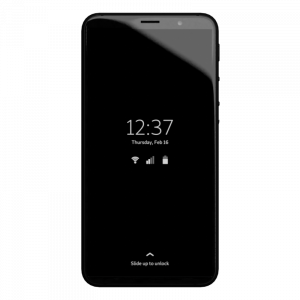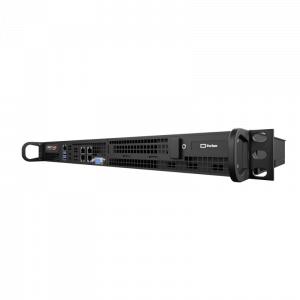Librem PQC Encryptor: Future‑Proofing Against Both SS7 and Quantum
Purism
Latest posts by Purism (see all)
- A Quarter Century After Cyberselfish, Big Tech Proves Borsook Right - December 20, 2025
- PureOS Crimson Development Report: November 2025 - December 15, 2025
- Purism Liberty Phone Exists vs. Delayed T1 Phone - December 10, 2025
The Threat We Keep Ignoring
Signaling System 7 (SS7) was designed in the 1970s to let telecom carriers route calls, deliver SMS, and enable roaming. It was never built with authentication or encryption in mind. Security wasn’t part of the plan. The assumption was simple: All carriers are trusted.
Fast forward to 2025, and that “trust” is a liability. SS7 has no authentication, no encryption, and no defense against modern threats.
The latest example — an SS7 zero-day selling for just $5,000 on underground forums — shows just how brittle this legacy infrastructure remains. This exploit targets the Mobile Application Part (MAP) layer, manipulating UpdateLocation and AnyTimeInterrogation messages to:
- Intercept SMS (including 2FA codes)
- Track a device’s location to within ~50 meters
- Redirect or eavesdrop on calls
- Enable SIM‑swap‑style fraud
This isn’t just cyber criminals. A recent investigation caught a Middle East-based surveillance vendor using a bypass attack to trick carriers into revealing subscriber locations. These attacks happen at the carrier level. End users can’t patch the vulnerability themselves.
Why Carrier Fixes Aren’t Enough
Telecommunications companies have deployed SS7 firewalls and filtering rules, but the global network is fragmented. One weak link — one misconfigured gateway in another country — can compromise millions.
And because SS7 is embedded into the core of mobile networks, replacing it is nearly impossible, like swapping the engine of a plane mid-flight.
Purism’s Approach: Don’t Trust the Network
Our philosophy is simple: encrypt everything, trust nothing.
That’s why we built Librem PQC Encryptor and Librem PQC Comms Server — tools designed to make SS7 attacks irrelevant.
Librem PQC Encryptor: Future‑Proofing Against Both SS7 and Quantum
- End-to-End Post‑Quantum Encryption: Even if an attacker intercepts your message or voice packets, the payload is unreadable without the keys.
- Out‑of‑Band Key Exchange: Keys are negotiated over a separate, encrypted channel — removing SS7 from the trust chain entirely.
- Forward Secrecy: Each session uses ephemeral keys, so even if one is compromised, past and future communications remain secure.
Librem PQC Comms Server: Control Your Own Signaling
- Carrier‑Independent Routing: Messages and calls are tunneled through your own encrypted server, bypassing SS7 for signaling and metadata exposure.
- Metadata Minimization: ML-KEM key exchange and AES-256 encryption protect the entire communications stack.
- Policy Enforcement: You decide which endpoints can connect, blocking rogue or spoofed network nodes.
How This Thwarts SS7 Exploits in Practice
| Attack Vector | Typical Impact | Purism Mitigation |
| SMS Interception | 2FA codes stolen, account takeover | PQC Encryptor replaces SMS‑based auth with encrypted app-level messaging |
| Call Eavesdropping | Voice content captured in transit | PQC Encryptor encrypts voice at the app layer; intercepted packets are gibberish |
| Call Redirection | Fraudulent rerouting to attacker endpoints | Comms Server enforces endpoint authentication, rejects spoofed signaling |
Own Your Encryption
SS7 proves a hard truth: legacy trust models are the enemy of privacy. You can’t wait for every carrier in every jurisdiction to fix their vulnerabilities. The only viable path is to own your encryption and your signaling.
Purism’s tools don’t fix SS7. They make SS7 irrelevant. With control over your encryption and signaling, you regain privacy and security — without depending on carriers who have failed to protect users for decades.
Security at the application layer — above the carrier — is the only defense for individuals and organizations who can’t dictate telco policy.
Bottom line: The SS7 threat isn’t going away. but with the right tools and approach, it can stop threatening your communications.
Purism Products and Availability Chart
| Model | Status | Lead Time | ||
|---|---|---|---|---|
 | Librem Key (Made in USA) | In Stock ($59+) | 10 business days | |
 | Liberty Phone (Made in USA Electronics) | In Stock ($1,999+) 4GB/128GB | 10 business days | |
 | Librem 5 | In Stock ($799+) 3GB/32GB | 10 business days | |
 | Librem 11 | In Stock ($999+) 8GB/1TB | 6+ weeks | |
 | Librem 14 | Out of stock | New Version in Development | |
 | Librem Mini | Out of stock | New Version in Development | |
 | Librem Server | In Stock ($2,999+) | 45 business days | |
 | Librem PQC Encryptor | Available Now, contact sales@puri.sm | 90 business days | |
 | Librem PQC Comms Server | Available Now, contact sales@puri.sm | 90 business days |
Recent Posts
Related Content
- A Quarter Century After Cyberselfish, Big Tech Proves Borsook Right
- PureOS Crimson Development Report: November 2025
- PureOS Crimson Development Report: October 2025
- Landfall: A Case Study in Commercial Spyware
- Librem PQC Encryptor: Future‑Proofing Against Both SS7 and Quantum


